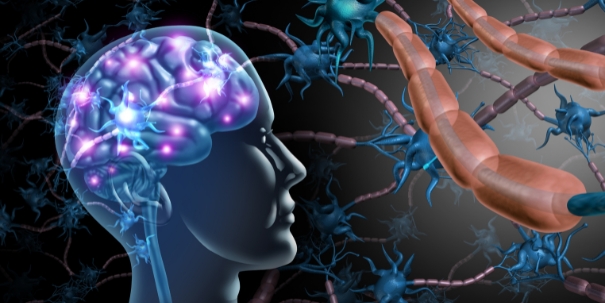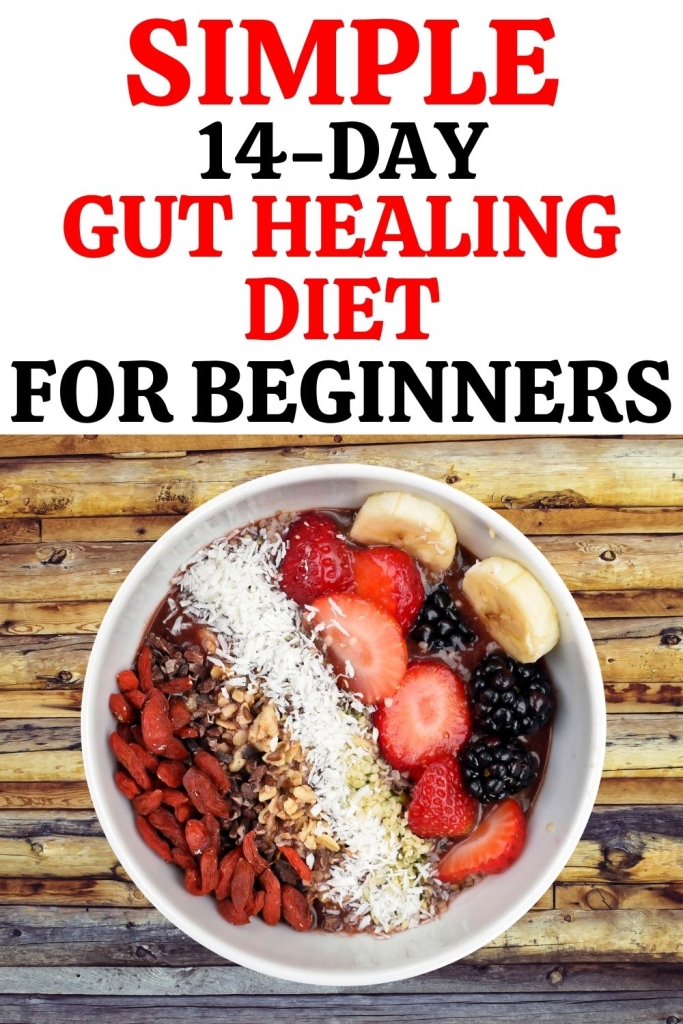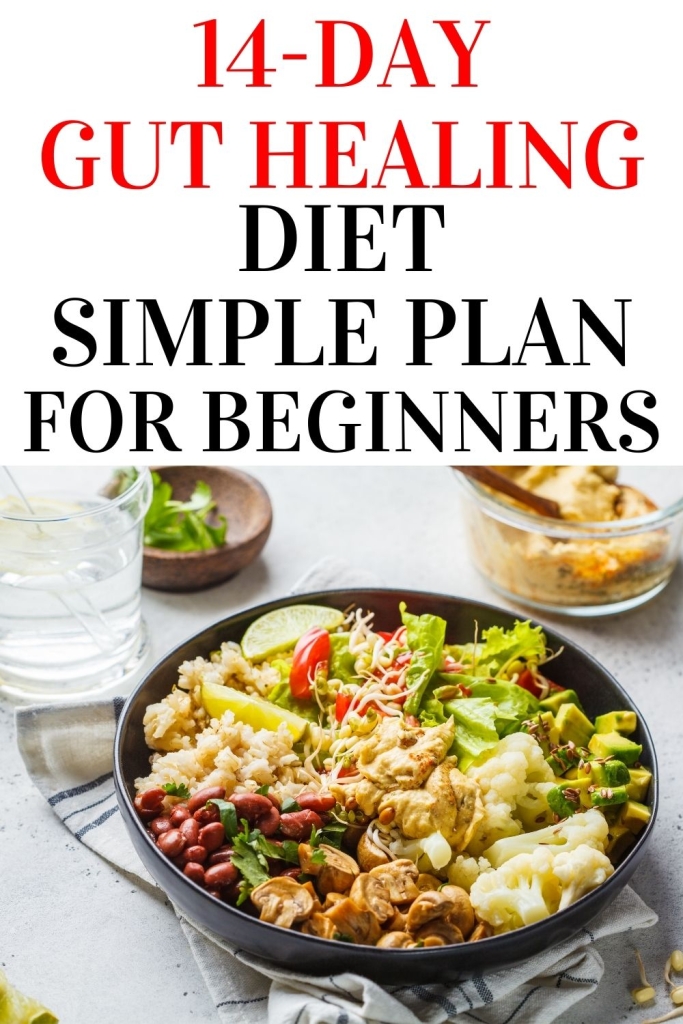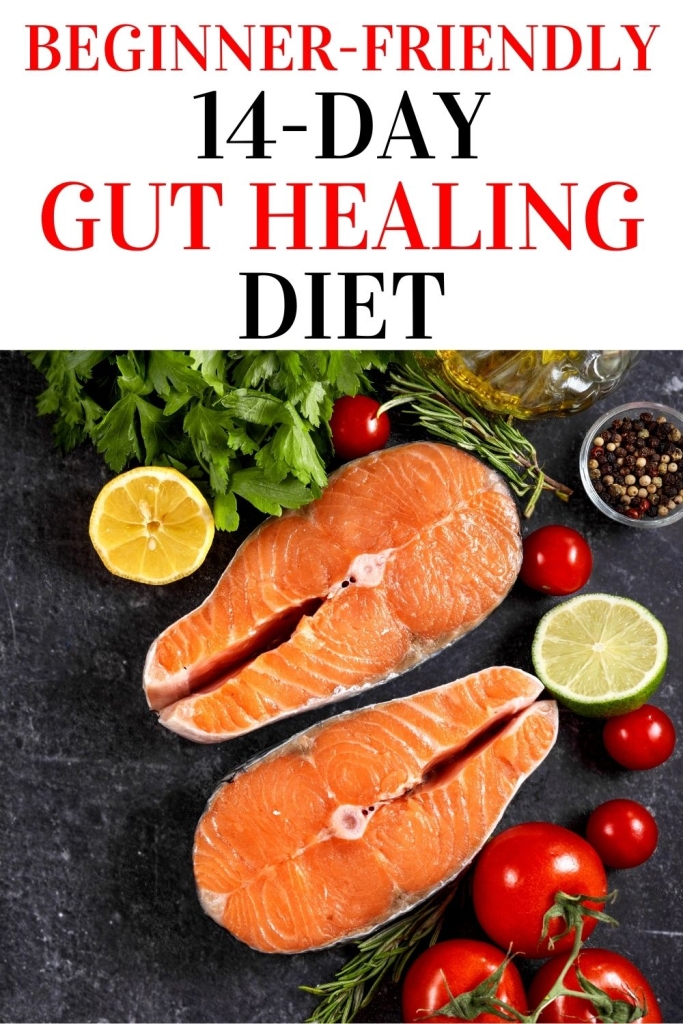Are you feeling bloated, sluggish, or just a bit “off”? Don't worry, you're not alone! These feelings can often be traced back to your gut. It might be trying to tell you something important. A healthy gut is the foundation of your overall well-being, influencing everything from your digestion and immunity to your mood and energy levels. When your gut is out of balance, it can lead to a cascade of those unpleasant symptoms you might be experiencing. But here's the good news: you can take control and reset your gut health in just 14 days! This article provides a detailed, 14-day gut-healing dietary plan designed to help you reclaim your vitality and feel your best. By making a few simple, yet powerful, dietary changes, you can begin to nourish your gut and experience the transformative power of a balanced microbiome. We'll guide you through the process, providing delicious meal ideas, and helpful tips to ensure your success. So, let's embark on this journey together and rediscover the vibrant, energized you!
The Gut-Brain Connection

You might be wondering, “What does my gut have to do with my brain?” The truth is, they're intimately connected in ways we're only beginning to fully understand. The gut is often called the “second brain” because it houses a vast network of neurons – an estimated 100 million of them – that communicate with the brain via the vagus nerve. This communication highway is a two-way street, with signals constantly traveling back and forth, influencing everything from your mood and stress levels to your sleep patterns and cognitive function.
Think of it like this: Your gut and brain are engaged in a constant conversation. When your gut is happy and healthy, it sends positive signals to your brain, promoting feelings of calm, contentment, and focus. But when your gut is out of balance, it can trigger a cascade of negative signals, contributing to anxiety, depression, brain fog, and even chronic pain.
The gut microbiome – the trillions of bacteria that reside in your digestive tract – plays a crucial role in this gut-brain communication. These microbes produce neurotransmitters like serotonin, dopamine, and GABA, which influence your mood, motivation, and sense of well-being. They also help regulate the stress response and modulate inflammation throughout the body, including the brain.
Emerging research suggests that the gut microbiome may even play a role in the development and progression of neurological disorders like Alzheimer's disease, Parkinson's disease, and autism. While more research is needed, these findings highlight the profound impact of gut health on brain health.
So, what can you do to nurture this vital gut-brain connection? The key is to prioritize a healthy diet rich in fiber, prebiotics, and probiotics. This will help cultivate a diverse and thriving gut microbiome that can support optimal brain function and overall well-being. In addition, managing stress, getting enough sleep, and engaging in regular exercise can also have a positive impact on both your gut and your brain. Remember, a happy gut means a happy brain!
Your Guide to Gut-Friendly Foods: Embrace and Avoid

On your 14-day journey to reset digestion and boost mood, understanding which foods help and hinder your gut is crucial. Think of your gut as a garden: cultivate beneficial bacteria (flowers) and minimize harmful ones (weeds).
Embrace These Gut-Loving Foods
- Probiotics: Introduce good bacteria for balance and improved digestion. Find them in kefir, yogurt (with live & active cultures), sauerkraut, kimchi, and miso.
- Prebiotics: Fuel for beneficial bacteria. Find them in onions, garlic, leeks, asparagus, Jerusalem artichokes, dandelion greens, seaweed, chicory root, bananas, apples, oats, barley, flaxseed, chia seeds, beans, lentils, chickpeas, and cocoa.
- Fiber: Promotes regularity and feeds good bacteria. Find it in berries, apples, pears, bananas, broccoli, Brussels sprouts, carrots, sweet potatoes, leafy greens, brown rice, quinoa, oats, buckwheat, lentils, beans, and chickpeas.
- Lean Proteins: Essential for health, well-tolerated by the gut. Find them in salmon, cod, tuna, shrimp, skinless chicken & turkey, eggs, tofu, and tempeh.
- Healthy Fats: Support nutrient absorption, anti-inflammatory. Find them in avocados, almonds, walnuts, chia seeds, flax seeds, and olive oil.
- Bone Broth: Soothes and repairs the gut lining.
- Anti-inflammatory Herbs & Spices: Ginger, turmeric, cinnamon, peppermint.
Approach These Foods with Caution
- Processed Foods: Often contain additives, preservatives, and unhealthy fats disruptive to gut bacteria. Limit packaged snacks, fast food, and processed meats.
- Refined Sugar: Feeds harmful bacteria, contributes to inflammation. Limit sugary drinks, candy, pastries, and hidden sugars in processed foods.
- Artificial Sweeteners: Can negatively impact gut bacteria. Limit diet sodas and sugar-free products.
- Excessive Saturated & Trans Fats: Difficult to digest, may cause inflammation. Limit fried foods, processed snacks, and some red meats.
- Alcohol: Irritates gut lining, disrupts bacterial balance. Limit beer, wine, and spirits.
- Caffeine: Can be harsh on sensitive guts. Limit coffee, excess tea, and some sodas.
- Gluten (for some): May worsen digestive issues. Consider limiting wheat, barley, and rye.
- Dairy (for some): Can be difficult to digest due to lactose. Be mindful of milk, cheese.
14-Day Gut-Healing Meal Plan

We've curated a 14-day meal plan featuring delicious and nutritious recipes that will nourish your gut and leave you feeling your best.
Here’s the Plan
Each day, simply choose one option from each category. Mix and match, have fun, and find your favorites!
14 Gut-Healing Breakfast Recipes
1. Fruit and Nut Parfait with Kefir and Granola: Layer kefir, granola, fruit, and nuts in a glass for a quick and easy breakfast parfait. Kefir provides probiotics, granola adds crunch and fiber, while fruit and nuts offer vitamins, minerals, and healthy fats.
2. Golden Milk: Golden milk is a warm and comforting drink made with turmeric, ginger, and coconut milk. Turmeric has anti-inflammatory properties and may benefit gut health. Enjoy a cup of golden milk in the morning to soothe your digestive system and start your day on a positive note.
3. Savory Oatmeal with Kale and Poached Egg: Oatmeal doesn't have to be sweet! Cook it with sautéed kale and top with a poached egg for a savory and satisfying breakfast that's high in protein and fiber.
4. Papaya Boat with Chia Seeds and Coconut Flakes: Papaya is rich in digestive enzymes that can help break down food and promote gut health. Halve a papaya, scoop out the seeds, and fill it with a mixture of chia seeds, coconut flakes, and a drizzle of honey for a tropical and gut-friendly breakfast.
5. Chia Pudding with Mango and Coconut Flakes: Chia seeds are another great source of prebiotic fiber, and they create a pudding-like texture when soaked in liquid. Top with mango for a tropical twist and coconut flakes for some healthy fats and texture.
6. Omelet with Spinach, Mushrooms, and Cheese: Eggs are a good source of protein and choline, which is important for gut health. Include spinach and mushrooms for additional nutrients and fiber, and top with a small amount of cheese for flavor and calcium.
7. Oatmeal with Apples and Cinnamon: Oatmeal is a classic breakfast choice that's high in soluble fiber, which helps regulate digestion and promotes a healthy gut microbiome. Add apples for sweetness and cinnamon for its anti-inflammatory properties.
8. Fermented Oatmeal with Fruit and Nuts: Fermenting oatmeal overnight can enhance its digestibility and increase its probiotic content. Simply soak rolled oats in milk or yogurt with a pinch of salt, and top with your favorite fruit and nuts in the morning for a tangy and nutritious breakfast.
9. Sprouted Grain Toast with Almond Butter and Banana: Sprouted grains are easier to digest and may offer more nutrients than regular grains. Top with almond butter for healthy fats and protein, and banana for natural sweetness and potassium.
10. Bone Broth with Vegetables: Bone broth is rich in nutrients that can support gut health, including collagen and gelatin. Add vegetables for additional fiber and vitamins. This warm and comforting breakfast is especially good on colder mornings.
11. Buckwheat Porridge with Fruit and Nuts: Buckwheat is a gluten-free seed that's high in fiber and resistant starch, which can help feed beneficial gut bacteria. Cook it like oatmeal and top with your favorite fruits and nuts for a satisfying and nourishing breakfast.
12. Sweet Potato Toast with Avocado and Egg: Sweet potato is a good source of fiber and vitamins, and it makes a delicious alternative to traditional toast. Top with creamy avocado and a poached or fried egg for a protein-rich and gut-friendly breakfast.
13. Miso Soup with Tofu and Seaweed: Miso is a fermented soybean paste that's packed with probiotics and beneficial enzymes. It forms the base for this savory and comforting soup, which you can enhance with tofu for protein and seaweed for additional nutrients.
14. Kefir Pancakes with Berries: Swap regular milk for kefir in your pancake batter for a probiotic boost. Top with fresh or frozen berries for sweetness and antioxidants.
14 Gut-Healing Lunch Recipes
1. Kale and Sweet Potato Salad with Tahini Dressing: This hearty salad combines the nutritional power of kale with the sweetness of roasted sweet potatoes. Toss it with a creamy tahini dressing for a satisfying and gut-healthy lunch.
2. Chicken and Vegetable Skewers with Brown Rice: Thread chicken and your favorite vegetables onto skewers and grill or bake them for a flavorful and protein-rich lunch. Serve with brown rice for a complete and balanced meal.
3. Buddha Bowl with Quinoa, Roasted Vegetables, and Hummus: A Buddha bowl is a colorful and nutritious lunch option. Quinoa offers protein and fiber, roasted vegetables provide vitamins and minerals, and hummus, made from chickpeas, adds healthy fats and protein.
4. Tempeh Wrap with Avocado and Greens: Tempeh, a fermented soybean product, is a good source of protein and probiotics. Wrap it with avocado for healthy fats and leafy greens for vitamins and minerals for a satisfying and gut-friendly lunch.
5. Kimchi Fried Rice with Egg: Kimchi, a spicy fermented Korean dish, is packed with probiotics. Add it to fried rice with vegetables and a fried egg for a flavorful and gut-healthy lunch.
6. Salmon Salad Sandwich on Sprouted Grain Bread: Salmon is rich in omega-3 fatty acids, which have anti-inflammatory properties and can benefit gut health. Combine it with Greek yogurt, herbs, and spices for a delicious salmon salad. Serve it on sprouted grain bread for added fiber and nutrients.
7. Sweet Potato and Black Bean Bowl: Sweet potatoes offer fiber and vitamins, while black beans provide protein and prebiotics. Combine them with your favorite toppings, such as avocado, salsa, and cilantro, for a flavorful and gut-friendly lunch bowl.
8. Baked Salmon with Steamed Broccoli and Brown Rice: Salmon is rich in omega-3 fatty acids, which have anti-inflammatory properties and can benefit gut health. Bake it with a simple lemon and herb marinade and serve it alongside steamed broccoli and brown rice for a complete and nourishing meal.
9. Miso Soup with Tofu and Seaweed: Miso, a fermented soybean paste, is a source of probiotics and beneficial enzymes. Miso soup with tofu and seaweed is a light yet nourishing lunch option that can support your gut health.
10. Vegetable Curry with Brown Rice or Quinoa: A vegetable curry packed with a variety of colorful vegetables and spices can be a flavorful and gut-friendly lunch. Serve it with brown rice or quinoa for a complete and satisfying meal.
11. Chicken or Tofu Stir-Fry with Brown Rice: A stir-fry is a quick and easy lunch option that can be customized with your favorite vegetables and protein. Choose chicken or tofu for protein and serve it over brown rice for a complete meal.
12. Zucchini Noodles with Pesto and Grilled Chicken: Zucchini noodles, or “zoodles,” are a low-carb and gluten-free alternative to pasta. Toss them with pesto for a flavorful sauce and add grilled chicken for protein. This light and refreshing lunch is easy to digest and packed with nutrients.
13. Kale and Quinoa Salad with Lemon Vinaigrette: Kale is a nutritional powerhouse, rich in vitamins, minerals, and fiber. Combine it with cooked quinoa for a protein boost and toss with a lemon vinaigrette for a zesty and gut-friendly salad.
14. Mason Jar Salad with Quinoa, Black Beans, and Avocado: Layer cooked quinoa, black beans, avocado, and your favorite vegetables in a mason jar for a convenient and gut-healthy lunch on the go. The combination of protein, fiber, and healthy fats will keep you feeling full and energized.
14 Gut-Healing Dinner Recipes
1. Vegetable and Tofu Curry with Coconut Milk: This creamy curry is packed with gut-healthy vegetables and protein-rich tofu. The addition of coconut milk adds a touch of richness and enhances the overall flavor. Serve it with brown rice or quinoa for a complete and balanced meal.
2. Lentil Shepherd's Pie with Sweet Potato Mash: This vegetarian twist on a classic comfort food is packed with gut-healthy ingredients. Lentils provide protein and fiber, while the sweet potato mash adds vitamins and a touch of sweetness.
3. Grilled Shrimp Skewers with Pineapple and Bell Peppers: Shrimp is a lean protein source that is easy to digest. Thread them onto skewers with pineapple chunks and bell peppers for a colorful and flavorful meal. Serve with a side salad or brown rice for a complete dinner.
4. Turkey Meatballs with Zucchini Noodles and Marinara Sauce: Swap traditional pasta for zucchini noodles, or “zoodles,” for a lower-carb and gluten-free option. Pair them with lean turkey meatballs and marinara sauce for a delicious and gut-friendly dinner.
5. Baked Chicken Breast with Roasted Sweet Potatoes and Green Beans: This classic combination is a simple yet satisfying dinner option. Chicken breast provides lean protein, sweet potatoes offer fiber and vitamins, and green beans add additional nutrients and fiber.
6. Vegetable and Tofu Skewers with Brown Rice: Thread colorful vegetables and marinated tofu onto skewers and grill or bake them for a flavorful and gut-friendly meal. Serve with brown rice for a complete and balanced dinner.
7. Butternut Squash and Chickpea Curry: This creamy and flavorful curry is packed with gut-healthy ingredients like butternut squash, chickpeas, and warming spices. Serve it with brown rice or quinoa for a satisfying and nourishing dinner.
8. Greek Salad with Grilled Chicken or Fish: A Greek salad is a refreshing and nutritious option for dinner. Combine cucumbers, tomatoes, olives, feta cheese, and a lemon-herb vinaigrette. Add grilled chicken or fish for protein and healthy fats.
9. Shrimp Scampi with Zucchini Noodles: Shrimp scampi is a light and flavorful dish that's perfect for a gut-healthy dinner. Swap traditional pasta for zucchini noodles and enjoy the delicious combination of shrimp, garlic, lemon, and herbs.
10. Quinoa Stuffed Bell Peppers: Bell peppers are packed with vitamins and antioxidants. Stuff them with a mixture of cooked quinoa, vegetables, and herbs for a colorful and gut-friendly dinner.
11. Baked Cod with Lemon and Herbs, Steamed Asparagus, and Brown Rice: Cod is a lean protein source that is gentle on the digestive system. Baking it with lemon and herbs adds flavor without the need for heavy sauces. Pair it with steamed asparagus for fiber and vitamins, and brown rice for a complete and fulfilling meal.
12. Turkey Chili with Sweet Potato and Black Beans: This hearty chili is packed with gut-healthy ingredients. Lean ground turkey provides protein, sweet potatoes offer fiber and vitamins, and black beans contribute both fiber and prebiotics. It's a comforting and satisfying option for a chilly evening.
13. Mediterranean Lentil Salad with Feta Cheese and Olives: This vibrant salad is a delicious way to incorporate lentils into your dinner routine. Combine cooked lentils with cucumbers, tomatoes, red onion, feta cheese, and olives. Toss with a lemon-herb vinaigrette for a refreshing and gut-friendly meal.
14. Roasted Vegetable and Quinoa Bowls with Tahini Dressing: This customizable bowl is packed with nutrients and flavor. Roast a variety of vegetables like broccoli, cauliflower, and carrots, and toss them with cooked quinoa. Drizzle with a creamy tahini dressing for a satisfying and gut-healthy dinner.
14 Gut-Healing Snack Recipes
1. Homemade Vegetable Chips: Make your own vegetable chips by thinly slicing vegetables like beets, carrots, or sweet potatoes and baking them until crispy. This is a healthier alternative to store-bought chips, providing vitamins, minerals, and fiber.
2. Banana Nice Cream: Blend frozen bananas until smooth and creamy for a healthy and delicious frozen treat. You can add other fruits, nuts, or seeds for extra flavor and nutrition.
3. Carrot Sticks with Hummus: Carrots are a good source of fiber and vitamins, while hummus, made from chickpeas, provides protein and healthy fats. This classic combination is a simple yet nutritious snack that's easy to prepare and enjoy on the go.
4. Kefir Smoothie: Kefir is a fermented milk drink that's rich in probiotics. Blend it with your favorite fruits and a handful of spinach or kale for a refreshing and gut-healthy smoothie.
5. Chia Seed Pudding: Chia seeds are a great source of fiber and omega-3 fatty acids. Soak them in milk or yogurt overnight to create a pudding-like texture. Top with berries or nuts for added flavor and nutrition.
6. Hard-Boiled Eggs: Eggs are a good source of protein and choline, which is important for gut health. Hard-boiled eggs are a convenient and portable snack that can be enjoyed on their own or added to salads.
7. Roasted Brussels Sprouts with Balsamic Glaze: Brussels sprouts are rich in fiber and contain compounds that may promote gut health. Roasting them brings out their natural sweetness, and a balsamic glaze adds a touch of tanginess.
8. Trail Mix with Nuts, Seeds, and Dried Fruit: A homemade trail mix is a great way to combine different gut-healthy ingredients. Include nuts and seeds for protein and healthy fats, and dried fruit for natural sweetness and fiber.
9. Roasted Chickpeas: Chickpeas are a good source of protein and fiber. Roast them with your favorite spices for a crunchy and satisfying snack that's easy to make and portable.
10. Homemade Sauerkraut: Sauerkraut is a fermented cabbage dish that's loaded with probiotics. Making your own allows you to control the ingredients and ensure a healthy and flavorful snack.
11. Oatmeal with Fruit and Nuts: Oatmeal is a classic breakfast food that can also make a great snack. It's high in soluble fiber, which helps regulate digestion and promotes a healthy gut microbiome. Top it with your favorite fruits and nuts for added sweetness and crunch.
12. Edamame: Edamame, or young soybeans, are a good source of plant-based protein and fiber. They are also rich in prebiotics, which can help nourish beneficial gut bacteria. Enjoy them steamed or roasted as a satisfying snack.
13. Green Smoothie with Pineapple and Ginger: This refreshing smoothie combines leafy greens like spinach or kale with pineapple and ginger. Pineapple aids digestion with its enzymes, while ginger can help soothe the stomach.
14. Cucumber Slices with Hummus: Cucumbers are hydrating and low in calories, making them a great base for a healthy snack. Pair them with hummus for a dose of protein and healthy fats.
Tips for Success
- Stay Hydrated: Aim to drink plenty of water throughout the day to support optimal digestion and overall health.
- Listen to Your Body: Pay attention to how your body feels after eating certain foods. If you notice any discomfort or digestive issues, consider eliminating or reducing those foods from your diet.
- Get Moving: Regular exercise can help improve gut motility and promote healthy digestion. Aim for at least 30 minutes of moderate-intensity exercise most days of the week.
- Manage Stress: Chronic stress can wreak havoc on your gut health. Find healthy ways to manage stress, such as yoga, meditation, or spending time in nature.
Conclusion
By following this 14-day gut-healing meal plan and incorporating these tips into your lifestyle, you can reset your gut, improve your digestion, and enhance your overall well-being. Remember, a healthy gut is the foundation of a healthy you. So, start nourishing your gut today and experience the transformative power of a balanced microbiome.








12 Responses
I’m excited to try this, but I’m worried about the cost. Some of these ingredients, like kefir and sprouted grain bread, can be expensive.
Hi Jessica, I understand your concern. Eating healthy can sometimes feel pricey, but there are ways to make this plan more affordable. You can substitute regular yogurt for kefir, and regular whole-grain bread for sprouted grain bread. Making your own bone broth is much cheaper than buying it pre-made. Also, focus on buying in-season fruits and vegetables, which are usually more affordable. Beans and lentils are excellent and inexpensive sources of protein and fiber. Check out the “14-Day Gut-Healing Meal Plan” section; many of the recipes use common, affordable ingredients. Don’t be afraid to get creative and adapt the recipes to fit your budget!
How quickly can I expect to see results on this diet? I’m hoping to feel a difference in my digestion and energy levels soon.
Hi Ashley, that’s a great question! Many people start to notice improvements in their digestion and energy levels within the first few days or weeks of following a gut-healing diet. However, everyone is different, and the exact timeframe can vary depending on individual factors like your starting point and how consistently you follow the plan. The “Tips for Success” section emphasizes the importance of listening to your body. Be patient and pay attention to how you feel. You might notice less bloating, more regular bowel movements, and increased energy. Remember, this is a journey, not a race. Stick with it, and you’ll likely experience positive changes over time!
This sounds really interesting, and I’m definitely looking to improve my gut health. But 14 days seems like a long time to stick to a specific meal plan. Is it really necessary to follow it that strictly for the whole two weeks? And what happens after the 14 days are over?
Hi Jennifer, thanks for your question! It’s great that you’re prioritizing your gut health. You’re right, 14 days can seem like a commitment. While following the plan strictly for the full two weeks can maximize the benefits, the most important aspect is incorporating the principles of gut-healthy eating into your lifestyle.
Think of the 14 days as a “reset” – a chance to give your gut a break from potentially irritating foods and nourish it with healing nutrients. It is a good amount of time to start seeing some positive changes in your digestion and overall well-being. However, even incorporating some of the meals and recipes into your regular routine can be beneficial.
After the 14 days, the goal is not to go back to your old habits but to transition to a sustainable, long-term way of eating that continues to support your gut health. This means continuing to prioritize whole, unprocessed foods like fruits, vegetables, lean proteins, and healthy fats. You can gradually reintroduce some foods you eliminated during the 14 days, paying close attention to how your body reacts.
The key is to listen to your body and find what works best for you. This meal plan is a starting point, a guide to help you discover a way of eating that makes you feel your best. It’s about making gradual, sustainable changes that you can maintain over time, not about strict perfection for a short period. I hope that clarifies things!
I’m intrigued by the gut-brain connection, but I’m not sure I completely understand how it works. Can you explain it in simpler terms? Also, I’m a really picky eater – are there any substitutions I can make to the meal plan if I don’t like certain foods?
Hi Melissa, thanks for your comment! The gut-brain connection is a fascinating topic. In simple terms, think of your gut and brain as being in constant communication, like best friends who are always on the phone. They “talk” to each other through a special pathway called the vagus nerve, which is like a direct phone line between them.
Your gut is full of trillions of tiny microbes, mostly bacteria, which are like the “residents” of your gut. These microbes do all sorts of important things, like helping you digest food, making vitamins, and even influencing your mood. When your gut is healthy and these microbes are happy, they send positive messages to your brain, making you feel good. But when your gut is unhealthy, it can send negative messages that might contribute to feelings of stress or anxiety.
So, by eating foods that nourish these good gut microbes, you’re essentially helping to keep that communication line positive and healthy, which can benefit both your physical and mental well-being.
Regarding substitutions, absolutely! The meal plan is a template, and you should feel free to adapt it to your preferences. If you don’t like a particular food, simply swap it out for something similar that you do enjoy. For example:
Don’t like salmon? Try another type of fish, like cod or tuna.
Not a fan of quinoa? Use brown rice or another whole grain instead.
Can’t stand kale? Substitute spinach or another leafy green.
The most important thing is to focus on the general principles of the diet: plenty of fruits and vegetables, lean protein, healthy fats, and fermented foods. There are many delicious options within each of those categories, so you can definitely find foods that you enjoy and that also support your gut health. Don’t be afraid to experiment and find what works best for you!
This article is making me rethink my entire relationship with food! I’ve always been a stress eater, reaching for sugary snacks when I’m overwhelmed. It’s eye-opening to learn how that might be affecting my mood and even my sleep. But 14 days of no sugar? That sounds like a Herculean task! Any tips for satisfying a sweet tooth without derailing my gut health? And what about coffee? Please tell me I don’t have to give up my morning cup of joe! Also, what is a vagus nerve? It sounds like a body part from a sci-fi film!
Anna, you’re not alone! Many of us turn to sugar for comfort. It’s a tough habit to break, but so worth it for your gut and overall health. For that sweet fix, try fruit with a dollop of Greek yogurt or a small piece of dark chocolate (70% cacao or higher). Dates are also nature’s candy! And good news – coffee isn’t off-limits! Just be mindful of the quantity and any added sugar or artificial sweeteners. As for the vagus nerve, it is not an alien body part, I promise! It’s a major nerve that connects your brain to your gut, like a communication superhighway. Think of it as the “gut-brain hotline”!
I’m all for feeling better, but this seems like a lot of work. Prepping all these meals, finding ingredients like “miso” and “kombucha”… I barely have time to shower, let alone become a gourmet chef! Is there a simpler way to improve gut health without turning my life upside down? And what’s the deal with fermented foods? Are we just eating rotten stuff now? It does not sound very appealing!
June, I totally get it – life is busy! You don’t have to become a master chef overnight. Start small. Maybe add an extra serving of vegetables to your dinner or swap your usual snack for a handful of almonds. Every little bit helps. And you can find pre-made versions of things like miso soup or pre-cut veggies to save time. As for fermented foods, don’t think of it as “rotten”! It’s more like… carefully controlled decomposition! Fermentation is an ancient way of preserving food, and it creates beneficial bacteria that are great for your gut. Think of yogurt, sauerkraut, or kimchi – they’re all fermented, and delicious! Don’t knock it until you’ve tried it. 😉